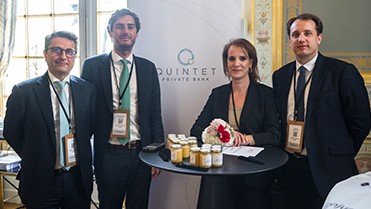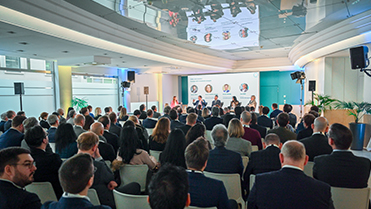-
Quintet Group
Choose your location
- Vacancies
- Log in
Choose your location
Menu
-
About Luxembourg
Celebrating our 75th anniversaryFind out about the milestones that have made Quintet a key player in the Luxembourg financial centre.

-
Financial Markets
- Financial Markets
- Our DNA
- Client-driven strategy
- Markets execution
- Liquidity & currency management
- Structured products & OTC derivatives
Access to financial marketsWith more than 60 years of experience and knowledge, Quintet has developed a client-driven strategy encompassing treasury, execution model and a focus on sophisticated products delivery including Structured Products, Fixed Income New Issues, Care Order Services and Forex.
-
Individuals
- Individuals
- Wealth planning & structuring
- Passing on wealth
- Discretionary Portfolio Management
- Lending
- myQuintet
International bankingOur approach combines the agility of a boutique institution with the global expertise required to navigate complex financial markets, ensuring your wealth is protected, optimized, and ready for growth.
-
Institutionals & Finance Professionals
- Institutionals & Finance Professionals
- Financial Intermediaries (FIM)
- Fund Solutions
- Private Label Solutions
- Banks & Insurance Companies
- myQuintetPro
Financial intermediaries (FIM)Whether you are an independent asset manager, a financial advisor or a Multi Family Office, your needs are at the core of our business.
- Our investment funds












